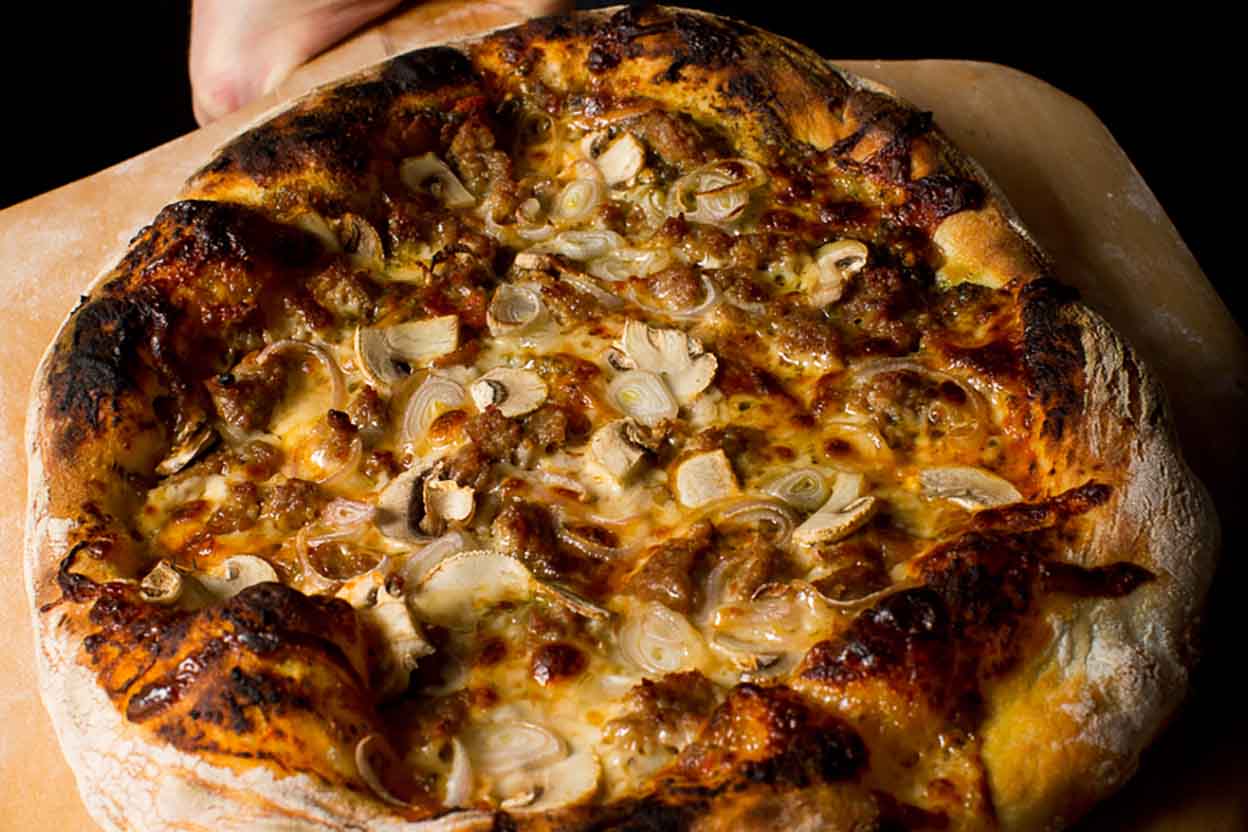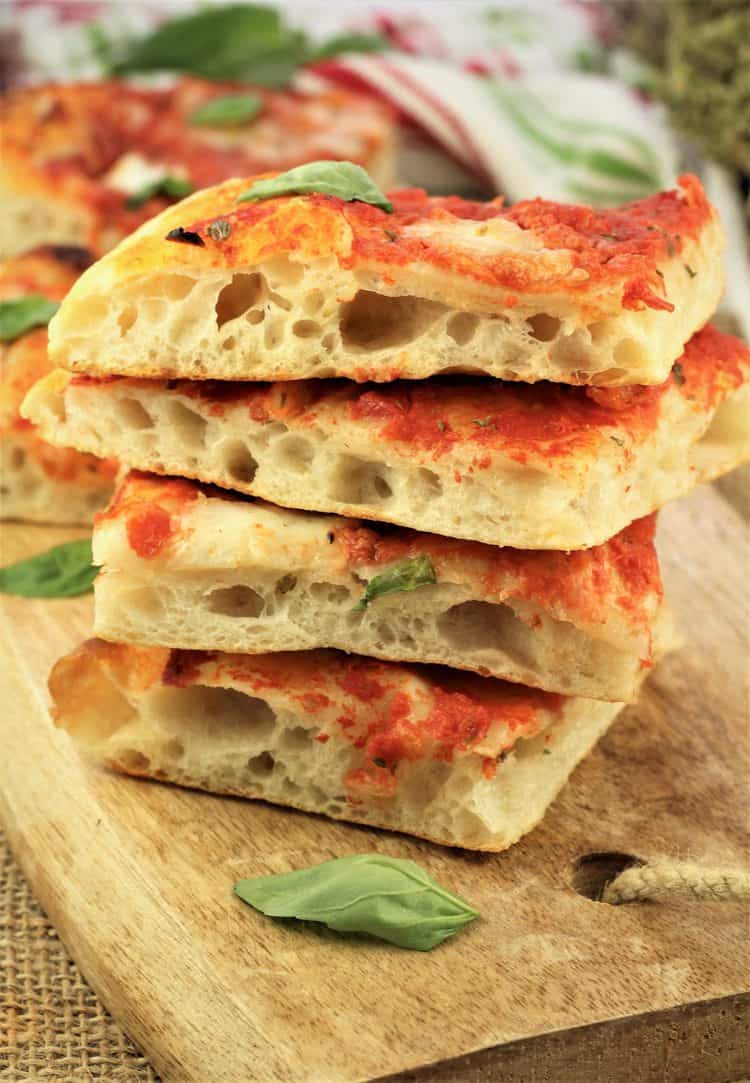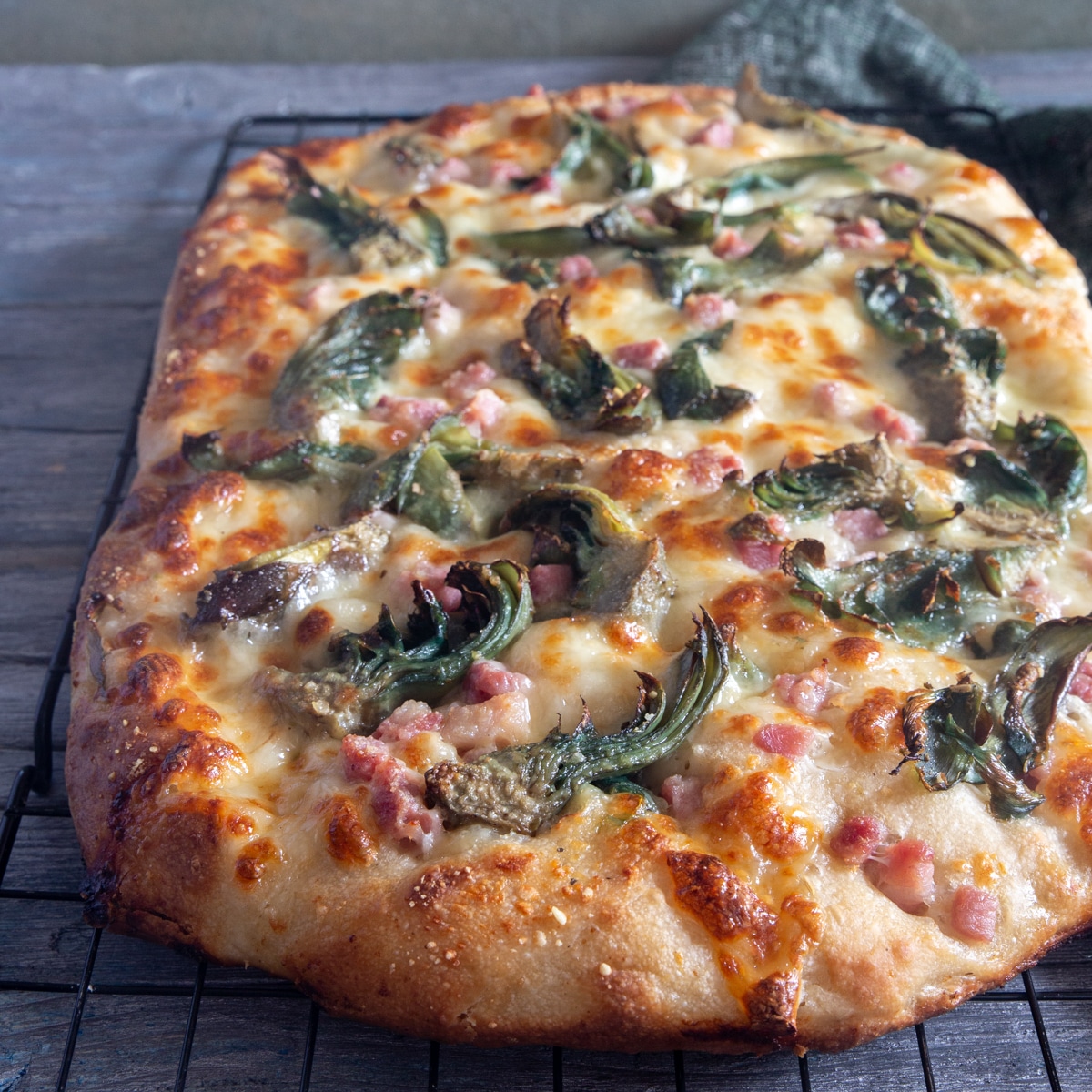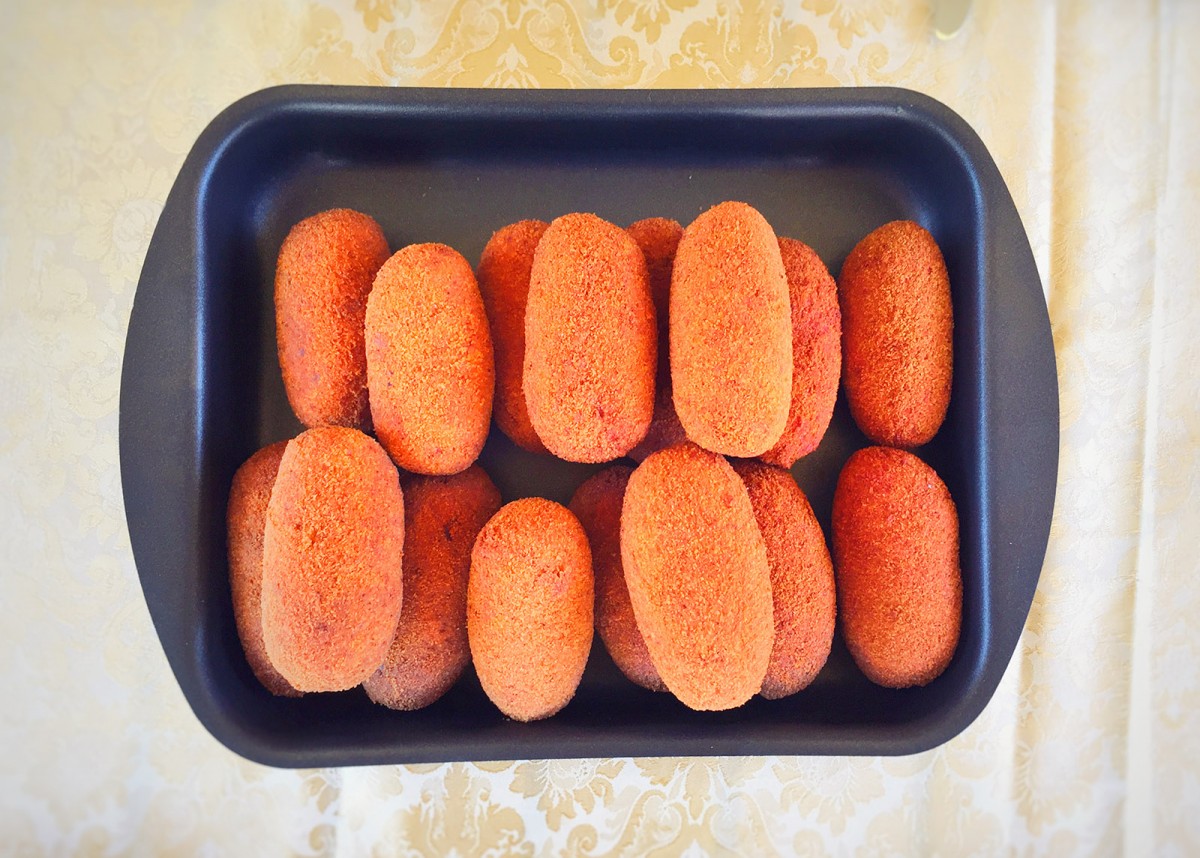No Knead Roman-Style Pizza Crust Recipe
4.2
(60)
Your folders
Your folders
Prep Time: 5 minutes
Servings: 16

Ingredients
Export 3 ingredients for grocery delivery
Instructions
Step 1
Wake the yeast. The yeast you buy in the baking aisle of the grocery is a powder made of dried dormant living organisms. You will bring them to life by adding them to the warm water in a small bowl and stirring. Let the mix sit for at least two minutes until it is all dissolved. The warm water wakes the dormant yeast cells, and they are hungry. When we mix them with the flour, they will rejoice at the feast and chow down. They start belching carbon dioxide bubbles, making alcohol, and things heat up. This is called "blooming the yeast".
Step 2
Make the dough. In a mixing bowl, stir together the flour and salt. Then add 6 tablespoons of oil, but not all of it, and stir it in. Then pour in the yeasty water and gently stir it in with the mixer on low. Resist the temptation to give 'er all she's got, Scottie, or you'll end up with flour in your face. It will not take long, about a minute, to mix it well enough. It does not have to be homogeneous, lumps are OK.
Step 3
First rise/fermentation. Dump the dough out of the bowl onto a clean table and with clean dry hands, work it gently into a ball. Clean the bowl and pour 1 tablespoon of oil into it and spread it all over all surfaces with your hands so it won't stick to the bowl.
Step 4
Put the dough back in the bowl. There should be room enough in the bowl for it to more than double in size without peeking above the rim. Get a clean cloth or kitchen towel, make it thoroughly wet with warm water, then wring out most of the water. Cover the bowl with the towel, but make sure it is not touching the dough.
Step 5
Fire up. Turn the oven on high for one minute only, then turn it off. You are just trying to warm the oven to about 90°F (32.2°C) so the yeast will grow. Now put the bowl covered with the towel in the oven and set a timer for 1 hour. Here's where the magic happens. As soon as the yeastie beasties got mixed into the dough, they began to chow down, producing carbon dioxide gas and alcohol. There's not a lot of alcohol, but there is enough CO2 to make the dough double in size in about an hour and smell like a brewery. That's the part I like.
Step 6
Proof. You can make crust now if you are in a hurry, but 12 to 24 hours of aging, called proofing, really improves its flavor and browning on the bottom. The difference is noticeable. My wife makes her dough the night before, transfers it to another bowl with a tight cover, then puts it in the fridge for tomorrow night's dinner. A good tight cover keeps the dough from drying out, so even a plate on the bowl will work. You can use plastic wrap, but believe it or not, that stuff allows air in and out.
Step 7
Form the crust. After proofing, you can make your pizzas, or you leave it in the fridge for 3 to 5 days, but that's all. Some experts think that aging it for this long really improves the flavor and crumb (baker talk for texture). You can wrap it in plastic and then foil and freeze it. It's not quite as good after freezing, but it is still better than the stuff you get in the stores. My wife usually cuts it in half and uses one half for a 14" (35.6 cm) pizza for the two of us, and freezes the other half.
Step 8
You can make one thick crust pizza if you wish, but I recommend that you start thin especially if you are cooking on the grill. Cover a 2' x 2' (61 cm x 61 cm) work surface with a light coat of flour and roll the dough into a round disk or push it out with your fingers. Try not to overwork the dough. For our 14" (35.6 cm) pan we roll it out to about 15 or 16" (38.1 or 40.6 cm). The dough is elastic and it will shrink back a bit. Just work it out trying to make it uniform thickness in the center. Beware of thin spots that might break or overcook. Oil the pan with the remaining oil and slide the dough in. We like to sprinkle a couple of tablespoons of corn meal on the oil to give the crust a rustic texture. You may want to leave it a little thicker along the edge, making what we call a pizza bone. If you want to try spinning and throwing it, go for it. Just make sure the floor is clean.
Step 9
Dress the pie. Now paint a thin layer of olive oil on top of the dough. This helps keep the wet ingredients from making the crust soggy. For a thin crust, dress it and it should go directly into the oven. For a poofier crust, let it sit around for up to an hour and the dough will rise a bit, then dress the pizza.
Top similar recipes
Curated for youYour folders

 634 views
634 viewsNo Knead Roman-Style Pizza Crust Re...
amazingribs.com
2
Your folders

 400 views
400 viewsNo-Knead Pizza Crust
kingarthurbaking.com
4.3
(16)
20 minutes
Your folders

 503 views
503 viewsArtisan No-Knead Pizza Crust
kingarthurbaking.com
4.6
(66)
8 minutes
Your folders

 328 views
328 viewsPerfect Pizza Crust (No Knead, No R...
melaniemakes.com
4.8
(21)
20 minutes
Your folders

 290 views
290 viewsNo Knead Neapolitan Style Pizza Dou...
amazingribs.com
4.1
(66)
10 minutes
Your folders

 739 views
739 viewsNo Knead Pizza Bianca Recipe
seriouseats.com
5.0
(4)
Your folders

 1198 views
1198 viewsNo-Knead Pizza Dough
biggerbolderbaking.com
4.7
(468)
10 minutes
Your folders

 236 views
236 viewsNo Knead Pizza Dough
handletheheat.com
4.8
(4)
Your folders
:max_bytes(150000):strip_icc()/88168636-589cb66a3df78c47581a3a3c.jpg)
 305 views
305 viewsNo-Knead Pizza Dough
thespruceeats.com
Your folders

 354 views
354 viewsNo-Knead Pizza Dough
handletheheatstage.kinsta.cloud
4.9
(44)
Your folders
/__opt__aboutcom__coeus__resources__content_migration__serious_eats__seriouseats.com__2019__01__20190124-trapizzino-vicky-wasik-59-a2dd55e324404a15a2758baa60d91edf.jpg)
 302 views
302 viewsHomemade Roman-Style Pizza Pockets ...
seriouseats.com
Your folders

 378 views
378 viewsEasiest No Knead Pizza Dough Recipe
mangiabedda.com
5.0
(3)
12 minutes
Your folders

 265 views
265 viewsNo-Yeast Pizza Crust
allrecipes.com
4.5
(450)
Your folders

 527 views
527 viewsNeapolitan-Style Pizza Crust
kingarthurbaking.com
4.9
(22)
8 minutes
Your folders

 445 views
445 viewsNeapolitan-Style Pizza Crust
foodal.com
5.0
(1)
10 minutes
Your folders

 98 views
98 viewsRoman Pinsa Pizza
anitalianinmykitchen.com
5.0
(6)
75 minutes
Your folders

 391 views
391 viewsRoman-Style Chicken
foodnetwork.com
4.6
(1.4k)
40 minutes
Your folders

 212 views
212 viewsRoman-Style Supplì
lacucinaitaliana.com
Your folders

 276 views
276 viewsRoman-Style Gnocchi
washingtonpost.com
3.5
(82)
55 minutes